HEALTHY HAPPENINGS MAY 2012 |
21st Century Medicine– Bandaids or True Healing? by Ray Andrew, MD |
The other day I saw an ad depicting Larry the Cable Guy trying to sell Prilosec. “Suffering from heartburn day after day is as unnecessary as wearing sleeves,” he says. It might be catchy, and it obviously sells, but it makes no more sense to take a drug to cover up heartburn than it does to cover up a skin cancer with a Bandaid every day.  Unfortunately, this has been the approach physicians have taken toward a host of health problems for over 100 years. Instead of making the effort to determine the cause of an individual’s heartburn, for example, we are content to suppress it with drugs that reduce stomach acid. As long as the patient feels better now, never mind the fact that excess stomach acid may have nothing to do with the problem. Never mind, either, that long-term acid suppression has some very serious consequences. When the heartburn worsens, we increase the dose of stomach acid-reducing medicine until the maximum dosage is reached. When that no longer works, patients are offered the next drug on the list or even advised to go under the knife in the hope of fixing the problem. 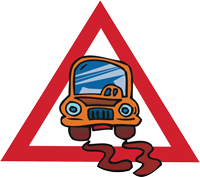 By contrast, at the Grand County Wellness Center, our interest is not in merely finding the magic pill that temporarily suppresses or controls every symptom. Instead, we search for potential causes and make every effort to help patients rebalance their physiology. Our approach is straightforward. Give the body what it needs; remove what it doesn’t need; treat causes, not symptoms. The body has a remarkable ability to heal itself if we give it the right fuel, remove the obstacles to health, and utilize an ever-growing array of tools to support the body’s repair. The more we learn, the more we discover that nobody has all the answers and that no single treatment is the definitive answer to a given condition. Fortunately, people are becoming increasingly aware that covering up each symptom with a drug doesn’t necessarily solve their problems. As a result, they are demanding more effective, less risky (think of all the side effects and complications rattled off at the end of the commercials), and more personalized care. They even ignore national expert committee opinions and specialty society consensus guidelines that seek to reduce human beings to numbers and medical professionals to technicians in an assembly line. Fortunately too, when doctors run lab tests and say “there is nothing wrong with you, just take this pill,” patients are no longer content. They keep looking. 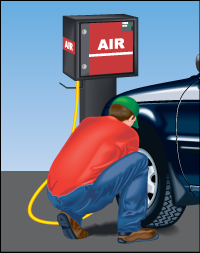 At the Grand County Wellness Center, we do not pretend to have all the answers; but we are always learning. Thanks to weekly continuing medical education from experts across the country, we do not practice the same medicine today as we did even one month ago. And we are never satisfied to just control symptoms. If you are driving and notice your steering wheel tugging toward one side, you wouldn’t just grip the steering wheel harder. Before too long, you would check your tire pressures and then your alignment. We feel the same way about diseases that arise in the human body – It makes much more sense to step back and take a look at what might be causing them than to merely compensate for or try to cover them up. When routine lab tests come back normal (or are simply not relevant in the first place), we are fortunate to be able to draw upon the resources of multiple specialty labs that enable us to get to the bottom of perplexing problems. A small sampling of the common problems for which we have uncommon solutions includes fatigue, depression, irritable bowel syndrome, constipation, muscle weakness, insomnia, sinus congestion, and yes, heartburn. Whether you have been dealing with issues like these for a week or decades, you might want to schedule an appointment. Or, if you feel fine now but want to prevent diseases for which you are or think you might be at risk, you will find refreshing our focus on true disease prevention, not just early detection. Either way, join your friends and neighbors in discovering the benefits of 21st-century medicine. At the Grand County Wellness Center, we do not pretend to have all the answers; but we are always learning. Thanks to weekly continuing medical education from experts across the country, we do not practice the same medicine today as we did even one month ago. And we are never satisfied to just control symptoms. If you are driving and notice your steering wheel tugging toward one side, you wouldn’t just grip the steering wheel harder. Before too long, you would check your tire pressures and then your alignment. We feel the same way about diseases that arise in the human body – It makes much more sense to step back and take a look at what might be causing them than to merely compensate for or try to cover them up. When routine lab tests come back normal (or are simply not relevant in the first place), we are fortunate to be able to draw upon the resources of multiple specialty labs that enable us to get to the bottom of perplexing problems. A small sampling of the common problems for which we have uncommon solutions includes fatigue, depression, irritable bowel syndrome, constipation, muscle weakness, insomnia, sinus congestion, and yes, heartburn. Whether you have been dealing with issues like these for a week or decades, you might want to schedule an appointment. Or, if you feel fine now but want to prevent diseases for which you are or think you might be at risk, you will find refreshing our focus on true disease prevention, not just early detection. Either way, join your friends and neighbors in discovering the benefits of 21st-century medicine. |
| Moab 's Spanish Valley Health Clinic |
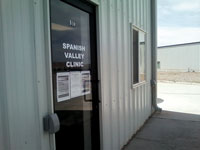 The Spanish Valley Clinic was opened in August of 2010 as an extension of the services of San Juan Health Care Services. This came on the request of many San Juan County Residents in Spanish Valley who pay taxes in San Juan County and desire healthcare where they reside. The Spanish Valley Clinic is proud to be able to serve the needs of its residents and the Moab community. “We’re extremely proud of each member of our staff and recognize the important role they play in extending a sense of trust to our patients and our communities.” The Spanish Valley Clinic was opened in August of 2010 as an extension of the services of San Juan Health Care Services. This came on the request of many San Juan County Residents in Spanish Valley who pay taxes in San Juan County and desire healthcare where they reside. The Spanish Valley Clinic is proud to be able to serve the needs of its residents and the Moab community. “We’re extremely proud of each member of our staff and recognize the important role they play in extending a sense of trust to our patients and our communities.” Dr. Lance Allen, D.O. recently joined the Spanish Valley Clinic Team. Dr. Allen has a strong desire to build an obstetrical practice in Moab. He is currently taking new obstetrical patients as well as providing families with general care. Spanish Valley Clinic’s other providers include Blen Freestone, PA-C and Kris Hayes, MD. Freestone also practices in family medicine but with an emphasis on functional medicine including: food allergies and intolerance as well as hormone replacement for both men and women. Dr. Hayes provides surgical consults and follow-up visits every Thursday at the Spanish Valley Clinic. Dr. Hayes is the resident surgeon for San Juan Hospital. Dr. Lance Allen, D.O. recently joined the Spanish Valley Clinic Team. Dr. Allen has a strong desire to build an obstetrical practice in Moab. He is currently taking new obstetrical patients as well as providing families with general care. Spanish Valley Clinic’s other providers include Blen Freestone, PA-C and Kris Hayes, MD. Freestone also practices in family medicine but with an emphasis on functional medicine including: food allergies and intolerance as well as hormone replacement for both men and women. Dr. Hayes provides surgical consults and follow-up visits every Thursday at the Spanish Valley Clinic. Dr. Hayes is the resident surgeon for San Juan Hospital. In March, 2012, Kelsie Backus, RN was hired as the manager for the Spanish Valley Clinic. Kelsie brings over 20 years of experience in the medical profession to the clinic. She spent the past 4 ½ years working at St. Mary’s Hospital in Grand junction, Colorado, in High Risk Obstetrics. Kelsie’s knowledge and experience makes her equipped to handle the needs presented at the clinic. She is a great asset. She, along with the doctors and staff of San Juan Hospital and staff of the clinics in Moab, Monticello and Blanding, are providing those patrons of Spanish Valley Clinic exceptional patient care. In March, 2012, Kelsie Backus, RN was hired as the manager for the Spanish Valley Clinic. Kelsie brings over 20 years of experience in the medical profession to the clinic. She spent the past 4 ½ years working at St. Mary’s Hospital in Grand junction, Colorado, in High Risk Obstetrics. Kelsie’s knowledge and experience makes her equipped to handle the needs presented at the clinic. She is a great asset. She, along with the doctors and staff of San Juan Hospital and staff of the clinics in Moab, Monticello and Blanding, are providing those patrons of Spanish Valley Clinic exceptional patient care.In 1988, the San Juan Health Services District was created as a special services district under the county's umbrella. In 2006 it became a 25 bed Critical Access Hospital. San Juan Hospital was recently named by the National Rural Health Association as one of the Top 100 Critical Access Hospitals in America. They will be celebrating National Hospital Week May 6th- 12th and offering numerous discounted services to the public. For more information on Hospital Week Activities call 435-587-2116. To schedule an appointment at the Spanish Valley Clinic call 435-259-7606 or 435-587-5054. |
| Moab Regional Hospital Promoting Strategies to Maintain Health and Wellness by Jennifer Sadoff |
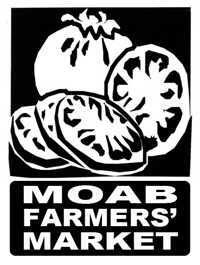 Until the late-1980s, Type 2 diabetes was considered a disease of the middle-aged and elderly, developed after years of poor diet and lack of exercise. Unfortunately, a diet heavy in sugar and a decrease in physical activity have led to a dramatic increase in diagnosis of Type 2 diabetes in adolescents and children as young as five. Recent sobering research indicates that Type 2 diabetes progresses much faster and is harder to treat in children than in adults. Physicians are calling for communities to get proactive about addressing the problem of obesity, as this is clearly not an issue that can be addressed in the doctor’s office alone. Until the late-1980s, Type 2 diabetes was considered a disease of the middle-aged and elderly, developed after years of poor diet and lack of exercise. Unfortunately, a diet heavy in sugar and a decrease in physical activity have led to a dramatic increase in diagnosis of Type 2 diabetes in adolescents and children as young as five. Recent sobering research indicates that Type 2 diabetes progresses much faster and is harder to treat in children than in adults. Physicians are calling for communities to get proactive about addressing the problem of obesity, as this is clearly not an issue that can be addressed in the doctor’s office alone.This summer at the Moab Farmers’ Market, Moab Regional Hospital will begin introducing a new campaign of eight healthy habits that will help address the epidemic of obesity and obesity related diseases. Led by Janel Arbon, certified dietician at MRH, the hospital’s tent will focus on hands-on education and fun 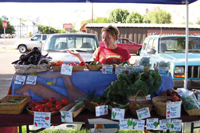 inspiration to get fit. It will be set-up at the first Farmers’ Market each month. Cooking demonstrations that introduce new ways to prepare vegetables, educational displays about the content of sugar in different beverages and cereals, and services such as blood pressure tests, will help community members monitor their health and make healthy changes in their diet and lifestyle. To find out about the different activities that will be offered throughout the summer, visit the Moab Regional Hospital Facebook page, or call Jen Sadoff at 435-719-3514. The Moab Farmers’ Market is held at Swanny City Park every Saturday from 8am-Noon from May through October. For more information on the Farmers’ Market, visit the Youth Garden Project website at www.youthgardenproject.org. inspiration to get fit. It will be set-up at the first Farmers’ Market each month. Cooking demonstrations that introduce new ways to prepare vegetables, educational displays about the content of sugar in different beverages and cereals, and services such as blood pressure tests, will help community members monitor their health and make healthy changes in their diet and lifestyle. To find out about the different activities that will be offered throughout the summer, visit the Moab Regional Hospital Facebook page, or call Jen Sadoff at 435-719-3514. The Moab Farmers’ Market is held at Swanny City Park every Saturday from 8am-Noon from May through October. For more information on the Farmers’ Market, visit the Youth Garden Project website at www.youthgardenproject.org. |